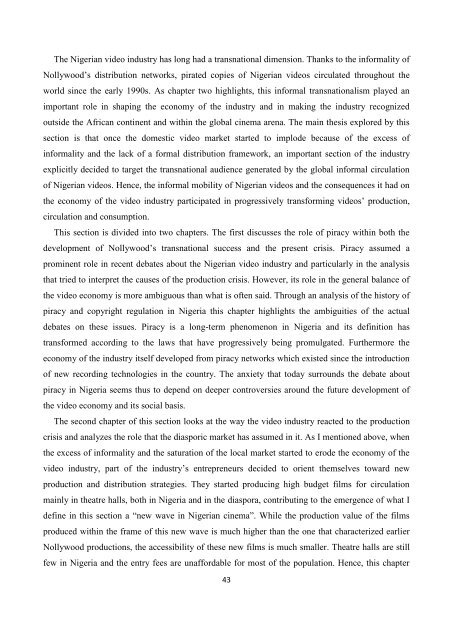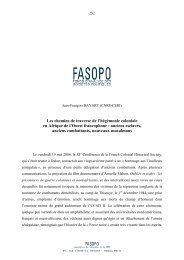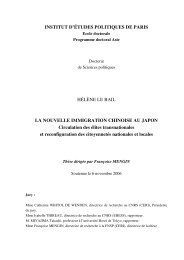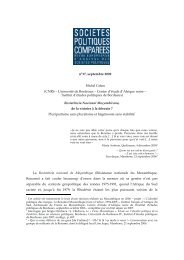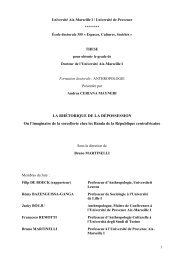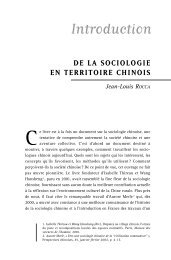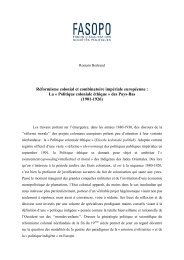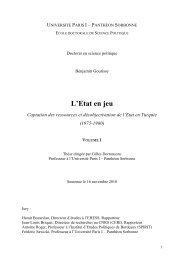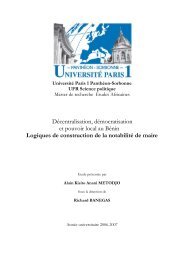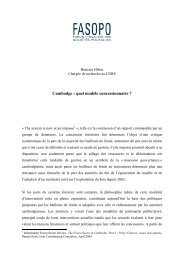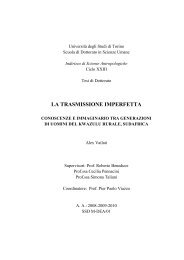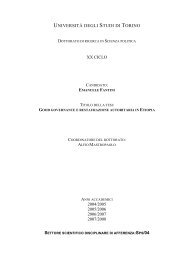Create successful ePaper yourself
Turn your PDF publications into a flip-book with our unique Google optimized e-Paper software.
The Nigerian video industry has long had a transnational dimension. Thanks to the informality ofNollywood’s distribution networks, pirated copies of Nigerian videos circulated throughout theworld since the early 1990s. As chapter two highlights, this informal transnationalism played animportant role in shaping the economy of the industry and in making the industry recognizedoutside the African continent and within the global cinema arena. The main thesis explored by thissection is that once the domestic video market started to implode because of the excess ofinformality and the lack of a formal distribution framework, an important section of the industryexplicitly decided to target the transnational audience generated by the global informal circulationof Nigerian videos. Hence, the informal mobility of Nigerian videos and the consequences it had onthe economy of the video industry participated in progressively transforming videos’ production,circulation and consumption.This section is divided into two chapters. The first discusses the role of piracy within both thedevelopment of Nollywood’s transnational success and the present crisis. Piracy assumed aprominent role in recent debates about the Nigerian video industry and particularly in the analysisthat tried to interpret the causes of the production crisis. However, its role in the general balance ofthe video economy is more ambiguous than what is often said. Through an analysis of the history ofpiracy and copyright regulation in Nigeria this chapter highlights the ambiguities of the actualdebates on these issues. Piracy is a long-term phenomenon in Nigeria and its definition hastransformed according to the laws that have progressively being promulgated. Furthermore theeconomy of the industry itself developed from piracy networks which existed since the introductionof new recording technologies in the country. The anxiety that today surrounds the debate aboutpiracy in Nigeria seems thus to depend on deeper controversies around the future development ofthe video economy and its social basis.The second chapter of this section looks at the way the video industry reacted to the productioncrisis and analyzes the role that the diasporic market has assumed in it. As I mentioned above, whenthe excess of informality and the saturation of the local market started to erode the economy of thevideo industry, part of the industry’s entrepreneurs decided to orient themselves toward newproduction and distribution strategies. They started producing high budget films for circulationmainly in theatre halls, both in Nigeria and in the diaspora, contributing to the emergence of what Idefine in this section a “new wave in Nigerian cinema”. While the production value of the filmsproduced within the frame of this new wave is much higher than the one that characterized earlierNollywood productions, the accessibility of these new films is much smaller. Theatre halls are stillfew in Nigeria and the entry fees are unaffordable for most of the population. Hence, this chapter43


